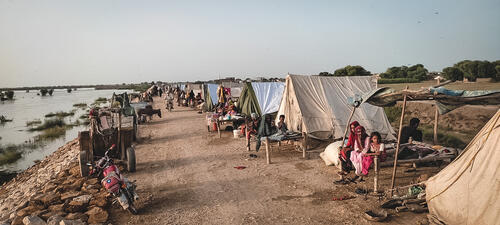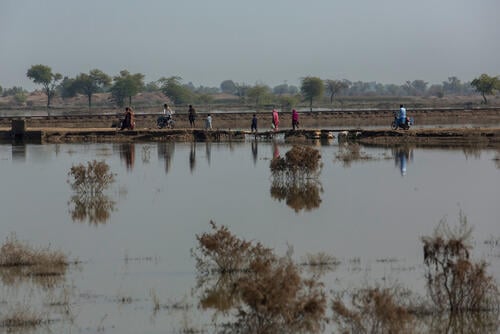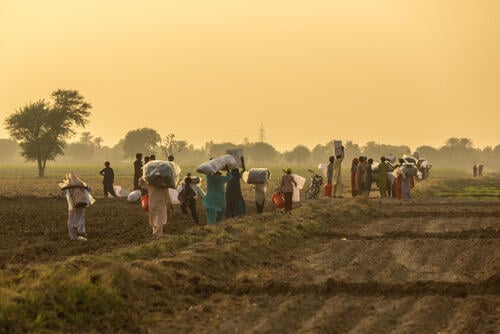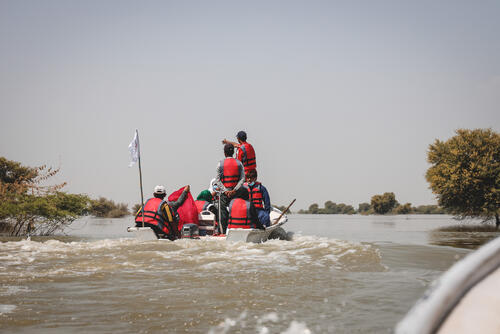1. More than one million houses have been destroyed or damaged
Many people who have lost their homes have set up makeshift shelters along or near the roadways, while others are now living on riverbanks. In Balochistan province, 31 districts out of 33 have been severely affected. Our teams, including staff who’ve had their own homes flooded, are providing general healthcare to people congregating on the roads and in schools.
2. Access to clean water, food and shelter are the most pressing needs
With roads and access points completely flooded, food and other supplies are dwindling. There is a dire need for adequate water and sanitation in order to prevent the widespread outbreak of disease. An increase of vector-borne diseases, such as dengue and malaria, are expected. Our teams are currently assessing the needs and are preparing accordingly.
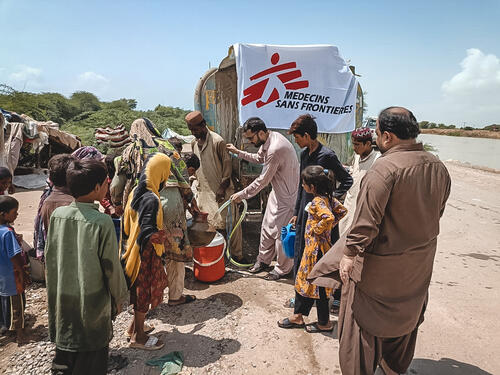
3. We are seeing people with respiratory infections, fever, skin diseases and diarrhoea
We have started up mobile clinics in Dera Murad Jamali (DMJ), in Balochistan, providing basic healthcare and health promotion activities, as well as referrals to the District Headquarters hospital in DMJ. Most of the patients we treat have respiratory infections, fever, skin diseases and diarrhoea. We are also screening children for malnutrition through our mobile clinics.
4. An urgent scale-up of the response is needed from humanitarian groups and others
Indications show that around 50 to 60 per cent of houses made of mud in the areas of Sindh, Punjab and Khyber Pakhtunkhwa have been destroyed by the flood waters. There is an urgent need for clean drinking water, hygiene kits and medical care to avoid the further spread of skin infections and diarrhoea.
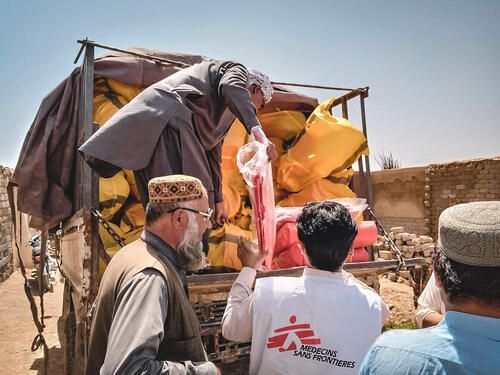
5. People must be safeguarded before further rains arrive
Long-term steps must be taken to safeguard the communities who are now displaced and languishing in areas that remain prone to further flooding. An urgent scale-up of the response is needed from humanitarian groups and others, based on the sheer number of people affected.
Mostly we are seeing patients with complaints of fever, malaria, acute watery diarrhoea and skin infections due to unhygienic conditions.Dr Ruby Tariq, MSF doctor in Pakistan
How we are responding
Our teams are responding and assessing the humanitarian crisis across all four provinces of Pakistan – Balochistan, Sind, Punjab and Khyber Pakhtunkhwa. In Dera Murad Jamali (DMJ), in Balochistan, we are running mobile clinics, providing general healthcare and health promotion activities. Most patients have respiratory infections, fever, skin diseases and diarrhoea.
We faced difficulties in reaching people affected in the Dadu district of Sindh, in part because many roads have been swept away. However, our teams are now on the ground there and have reached camps where people who have been displaced and are taking shelter. We are currently assessing the needs and preparing our support, including for possible outbreaks of water-borne and vector-borne diseases, such as malaria and dengue fever.
We are also currently assessing the needs in Dera Ghazi Khan and Rajanpur districts of Punjab province, and Charsadda and Nowshehra in Khyber Pakhtunkhwa province.



